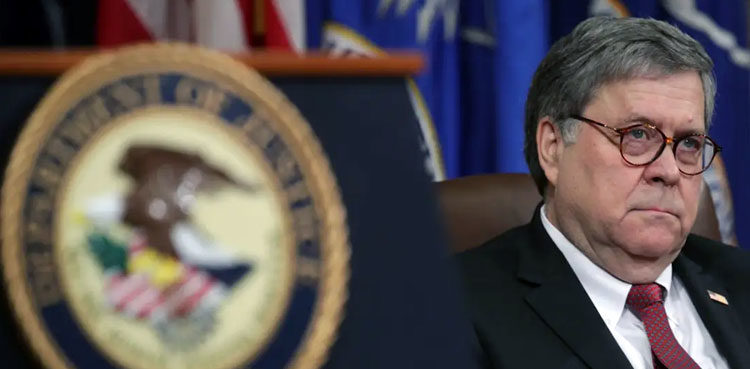
In his first interview since a report by Justice Department Inspector General Michael Horowitz faulting the FBI for missteps in how it sought to put a former Trump campaign adviser under surveillance, Barr said he still has doubts about the FBI’s motives to pursue what he called a “baseless” investigation.
The internal watchdog’s report here on Monday also concluded that the FBI had opened a legal, authorized probe, and it found no evidence of political bias.
Barr, in an interview with NBC News, however, cast doubt on the findings.
He said Horowitz used a standard that was “deferential” to the FBI when he investigated the claims of bias, and suggested that a final judgment cannot be made until federal prosecutor John Durham has completed his own separate investigation into the origins of the Trump-Russia investigation.
“I think our nation was turned on its head for three years based on a completely bogus narrative that was largely fanned and hyped by a completely irresponsible press,” Barr said.
“I think that leaves open the possibility that there was bad faith.”
Barr also said he was disturbed by the FBI’s reliance on a dossier penned by former British spy Christopher Steele in order to obtain a wiretap to monitor the campaign adviser Carter Page, saying the dossier was “complete rubbish” and a “complete sham.”
Barr has come under withering criticism from Democrats, who have accused him of acting more like Trump’s personal attorney and not like the Attorney General of the United States.
Earlier this year, Barr tapped Durham, the U.S. Attorney for the District of Connecticut, to look into the origins of the investigation into Trump’s campaign.
Durham’s probe is broader than Horowitz’s mandate because it involves talking to multiple U.S. intelligence agencies, such as the CIA, and foreign powers.
Durham, unlike Horowitz, also has the power to subpoena non-government witnesses and talk to people who are not Justice Department employees.
Barr told NBC that while he is not sure when Durham will complete his investigation, he expects it to reach an important “watershed” in the late spring or early summer.



0 Comments